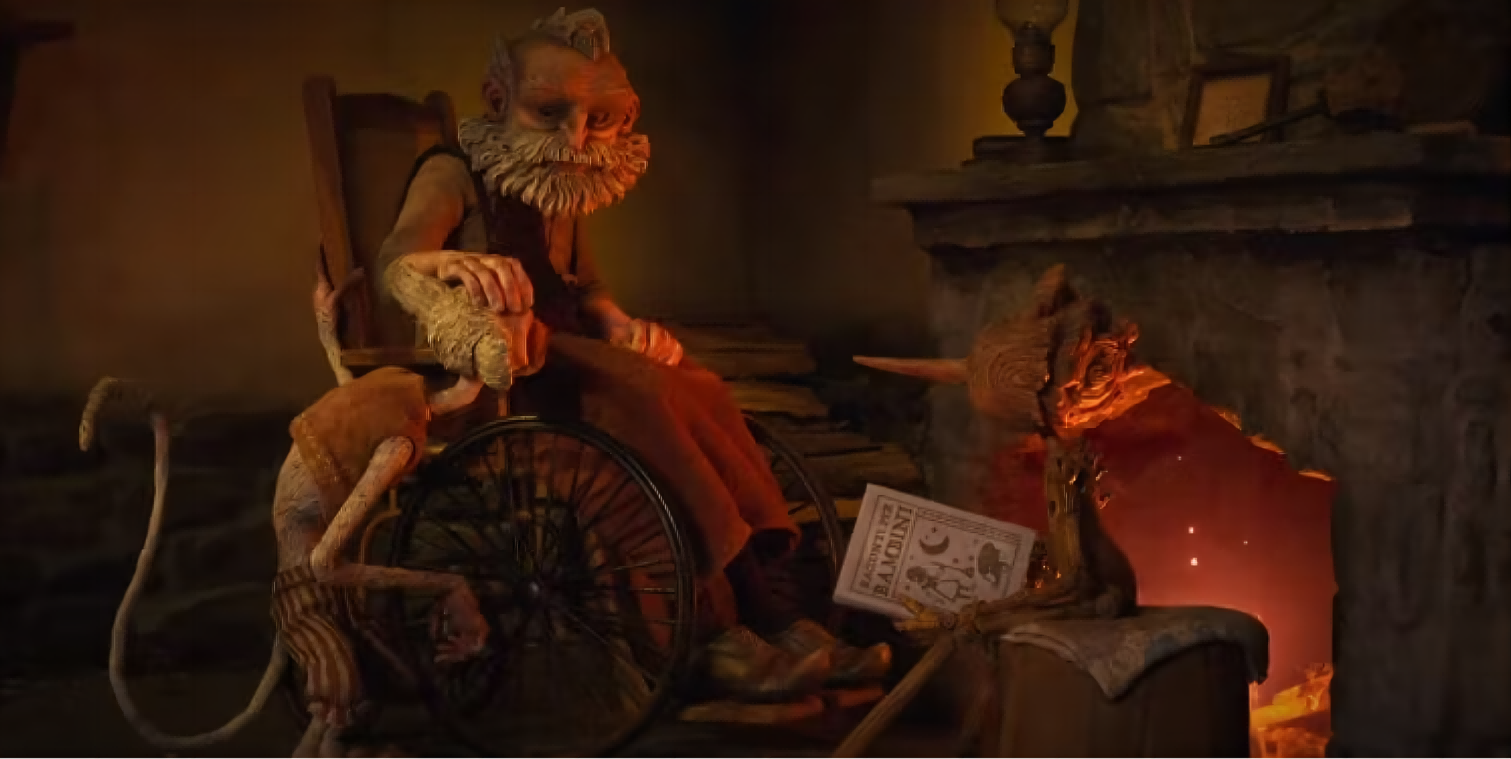Del Toro’s Pinocchio Has a Happy Ending – But It’s Incredibly Dark

While Guillermo del Toro’s vision in Netflix’s Pinocchio comes to a happy end based on togetherness, it still has a rather dark edge.
One of the things many fans always hope for with fairytale stories is a happy ending. In the case of Pinocchio, when Disney adapted the iconic property from Carlo Collodi, it did just that, with Geppetto getting the puppet back as a real boy in the end. As for the 2022 live-action remake, Pinocchio and his dad are also reunited, although it’s vague if he does become a human.
The point is both are optimistic and hopeful and leave viewers with a strong sense of warmth and closure by the time the movie ends. However, when Netflix’s stop-motion animation take on Pinocchio concludes, as much as it’s an ending based on the concept of family, it’s also very macabre in a subtle, cerebral manner.
In Guillermo del Toro’s Pinocchio, the title puppet ends up as a child soldier in fascist Italy in the ’30s. However, during a bombing, he falls off a cliff into the sea. There, he’s swallowed by the signature sea monster from the lore, only to meet Geppetto and Sebastian (the talking cricket). Thankfully, Spazzatura, the pet monkey who helps save him from the tyrannical Volpe, is also there with him.
They all escape the monster in the ocean, but Pinocchio must blow the beast up with a mine and dies. Rather than wait to come back to life like usual, Pinocchio gives up his immortality to save a drowning Geppetto. Sadly, the puppet dies permanently as they all wash ashore, but Sebastian uses his wish from the wood sprite to resurrect the wooden doll. This time, he doesn’t get turned into a human because Geppetto loves him for who he is, finally distinguishing him from his dead son, Carlo. It fits the theme of identity, acceptance and moving past trauma as they all move on to a warm household in Italy.
Pinocchio, though, has one last caveat, as Sebastian’s narration from the book he wrote on their time together confesses that while they were happy, it didn’t last, as nature took its course. Geppetto died of old age, as well as the cricket and Spazzatura. This left Pinocchio marking their graves, offering tributes and then wandering off into the real world — alone. Sebastian even admits he doesn’t know what became of the kid, if society accepted him, if he died and such. So, while the ending does speak to how life’s fleeting, it’s quite haunting and existential dread-inducing.
After all, Pinocchio was an immortal child, so it’d have been nice to know how he evolved or if he suffered in agony. Instead, the movie keeps him as this doll meant to stand the test of time, seeing everything and everyone he loves die. Had Pinocchio just teased a bit of an older, wiser and more self-assured puppet, this depressive feeling that went from escapism to a harsh dose of reality would have been easily off-set. Ultimately, it’s pretty messed up once one gets below the veneer of that idealistic wish made, with the passage of time reminding Pinocchio that, no matter what, he’s meant to forever be alone, which shapes his gift as a veritable curse.
BY:RENALDO MATADEEN

熱門頭條新聞
- Milan Games 2025
- Bluey animated film announced by Disney+ and BBC Studios
- New Program Confirmations – Forum is Open for Bookings
- A Brand New Indie Title, Steel Knight’s ARMIS
- Subscriptions to Free Streaming: The Platforms and Formats Redefining Entertainment
- New AI Research Foreshadows Autonomous Robotic Surgery
- Magia Exedra – More Than 400,000 Pre-Registrations Achieved!
- Mufasa: The Lion King
